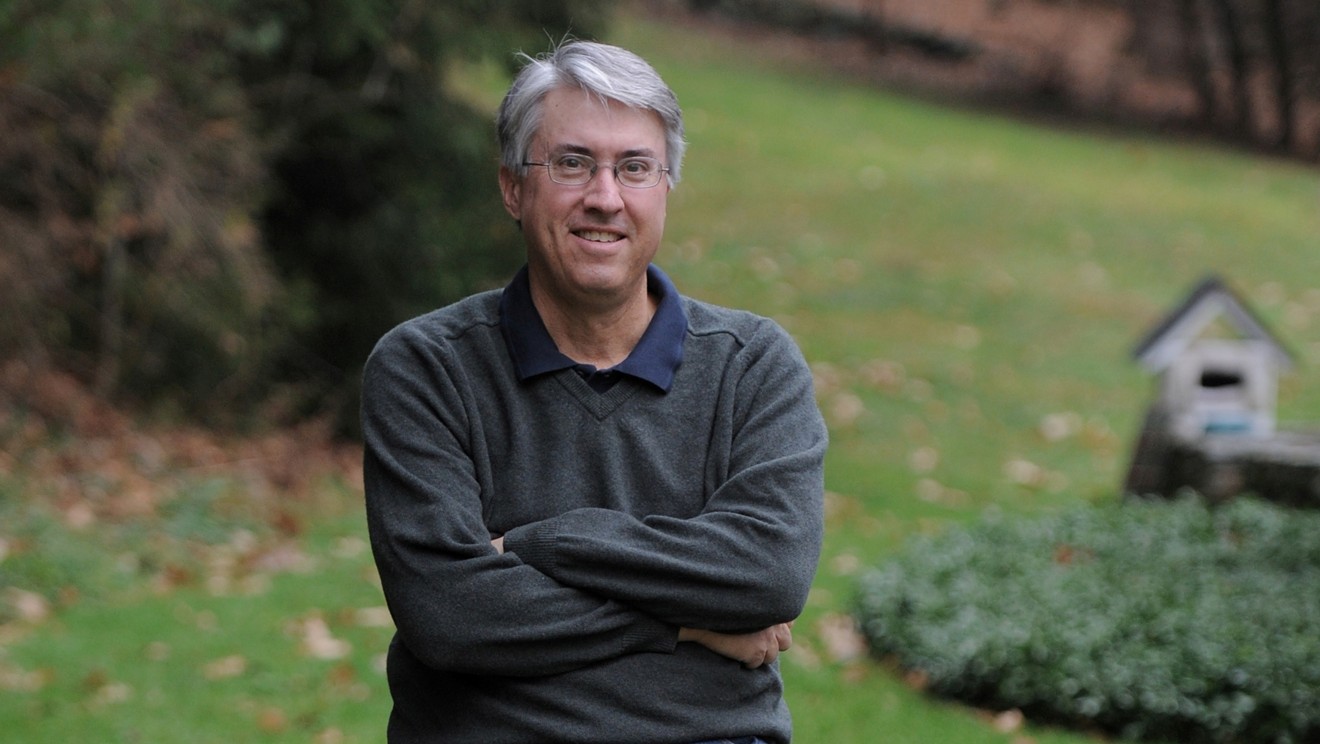Out here in the semi-arid West, there's probably no greater threat to civilization as we know it than the threats to our scarce water supply — from drought, industrial pollution, runaway growth or other catastrophes. Yet most books about water policy tend to be a lot like the Mojave Desert: deadly dry and half-baked.
Not so in the case of David Owen's new book, Where the Water Goes: Life and Death Along the Colorado River, which handles its sprawling subject with deftness and quirkiness. A New Yorker staffer who writes frequently about thorny environmental issues, Owen delves into the history and politics of the much-dammed, over-allocated river, as well as the arcana of western water law and the weirdness of RV culture, without losing sight of larger questions about the sustainability of America's efforts to make the desert bloom.
Where the Water Goes joins a distinguished list of books about the West's crazy water politics, but it's less elegiac than, say, the work of Philip Fradkin or Marc Reisner. Owen is a contrarian who tends to be as wary of green-bandwagon environmental crusades as he is of those who want to bring icebergs to California to alleviate drought. Yet the book has a generally upbeat tone and an occasional note of humor. (Point of disclosure: Owen and I briefly attended the same college decades ago and have crossed paths on rare occasions since that time — and for reasons not readily discerned by me, my name appears in the list of acknowledgments for his book.)
"The good thing about water is that you won't be able to wash tomorrow if you don't solve your water problems," Owen observed in a recent phone interview. "Water problems make it easier to address climate change. It's not necessarily a bad thing to have lots of people living where water is scarce; you have to do things to control and limit all these other impacts. But we tend to find ways around doing the right thing."
Las Vegas is often cited as the embodiment of gross wastefulness of the West's most precious liquid, but Owen argues that the place has been unfairly demonized. Nevada's initial allocation from the Colorado (which was divvied up among the basin states, based on wildly exaggerated computations, nearly a century ago) was small, and the state has been in front of the pack in recycling efforts. "The reason people look at Las Vegas and say it's the problem is that it happens to be the city that's closest to the river," Owen says. "But on the scale of what we draw from the river, it's tiny. The problem is not as easy as turning off the fountains at the Bellagio. There's probably more return on that amount of water, in terms of economic activity in Las Vegas, than there is in other places."
Owen writes with evident admiration for the engineering feat known as the Hoover Dam and shuns the usual insults about the rapid growth of Denver and Phoenix. As he sees it, metropolises like Denver make possible quaint riverside communities like Redstone (one of his stops as he traces tributaries of the Colorado through the state's high country). "They're totally interdependent, economically," he explains. "If you live off the grid, there are still all these networks in place to serve you. People complain that cities with big water issues, like Denver and Phoenix, are among the fastest-growing cities in the country. But where else would you put all these people? Drop them somewhere in Vermont?"
A certain orange-hued leader of the free world makes a guest appearance in Owen's far-ranging discussion. Several years before he declared his candidacy for the White House, Donald Trump was interviewed by Owen about golf-course operations and ended up talking about larger water issues. Trump suggested that California's chronic water problems could be solved — not with icebergs, but with a pipeline. Owen responded that it would have to be a pretty big pipe.
"I don't think we'll be hearing more from him about that one," Owen says. "He'd be perfectly happy to see California dry up and disappear."
Owen will speak about his journey and sign books at 7 p.m. Saturday, April 15, at the Tattered Cover Colfax, 2526 East Colfax Avenue; for more information, call 303-322-7727.
[
{
"name": "Air - MediumRectangle - Inline Content - Mobile Display Size",
"component": "12017618",
"insertPoint": "2",
"requiredCountToDisplay": "2"
},{
"name": "Editor Picks",
"component": "17242653",
"insertPoint": "4",
"requiredCountToDisplay": "1"
},{
"name": "Inline Links",
"component": "18838239",
"insertPoint": "8th",
"startingPoint": 8,
"requiredCountToDisplay": "7",
"maxInsertions": 25
},{
"name": "Air - MediumRectangle - Combo - Inline Content",
"component": "17261320",
"insertPoint": "8th",
"startingPoint": 8,
"requiredCountToDisplay": "7",
"maxInsertions": 25
},{
"name": "Inline Links",
"component": "18838239",
"insertPoint": "8th",
"startingPoint": 12,
"requiredCountToDisplay": "11",
"maxInsertions": 25
},{
"name": "Air - Leaderboard Tower - Combo - Inline Content",
"component": "17261321",
"insertPoint": "8th",
"startingPoint": 12,
"requiredCountToDisplay": "11",
"maxInsertions": 25
}
]













